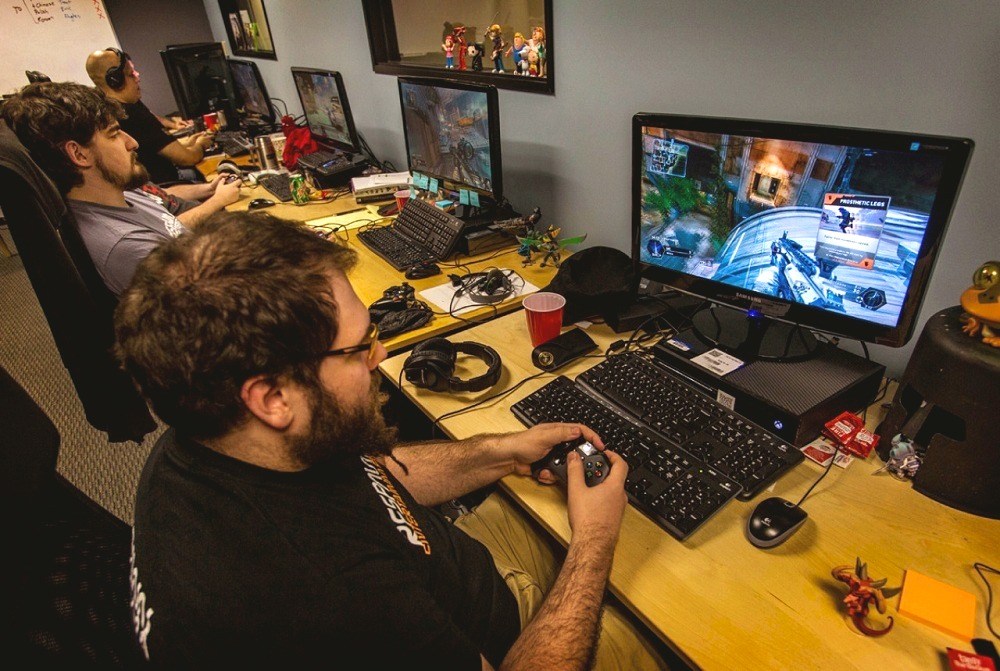How Can Video Games Make Your Kids Smarter?

Video game development is a big business. The industry was worth $159,3 billion as of the end of 2020 and continues to grow in 2021. Globally, children are spending hours playing the famous video games, such as Fortnite, League of Legends and Counter-Strike: Global Offensive (CS:GO). Parents even hire private tutors so that their children can get good at defeating opponents in virtual battles.
The debate is not one about the popularity of video games, though, but whether this highly-engaging piece of entertainment can teach your children something useful. The answer is not black and white. Some believe that there is immense virtue to teach through video games whereas others argue to the opposite.
Bill Gates limited his daughter to one hour of screen time. Exposure to screen time leads to changes in the brain structure, but the effects aren’t necessarily adverse. Overall, it’s never easy to make up your mind, least so if you are a parent. Here are some facts.
Kids in The Game (KING): Between Schooling And Gaming
Kids in the Game (KING) is an initiative that supports schooling through gaming. They decided to open a Middle School where kids would be allowed to participate in competitive video gaming collectively known as eSports.

The training sessions in popular sports simulators, such as FIFA and 2K NB, are alternated with real physical exercise sessions. It may appear like a strange idea, but it is one that seems to have worked for KING. The concept is very simple – encourage children to do more sports by doing more video gaming first.
KING is not alone in believing that playing more games can actually be good for the offspring. Forbes recently wrote an article explaining the benefits of teaching kids STEM, which stands for:
- Science
- Technology
- Engineering
- Math
The basis of each discipline can be successfully communicated through gaming. While games like Assassin’s Creed and Red Dead Redemption are technological feats that have seen thousands of hours of work go into them, there are far more accommodating studios out there that allow enthusiasts to toy around with their world creation tools.
Valve, a popular video gaming developer which stands behind titles such as Half-Life, Counter-Strike, and Defense of the Ancients (DotA) has an SDK Tool Set that allows you to create levels. The “Help” section allows you to understand the dynamics of video game creation as well as see the important mathematical principle at work.
While not everyone wants to be video game developer, video games can potentially teach kids how to use math to complete in-game objectives and level up while acquiring the knowledge they need to excel in important subjects at school and later on in higher education.
Playing Games To Be More Socially Apt
The Huff Post recently put together a list of skills that children can acquire through video gaming and not surprisingly, communication is one of the skills developed through gaming. According to Pew Internet, 70 percent of gamers plays together with their friends.
This is a previously unthinkable number. In a place like South Korea, gaming is not really an individual undertaking. People gather to play in special internet coffee shops and other facilities designed for gaming.
Apart from the social element, some observers tend to believe that games contribute to other important areas of children knowledge, such as reading comprehension and analytical thinking. Kids who use their imagination to become someone else in a fictional world practice empathy and other emotions.
Besides, there is one immense benefit of video gaming that cannot be ignored while not considered a skill. Games are simply fun and they help youngsters relax before another day in school for example.
Even though this is not a skill per se, the option to escape to another world allows children to recharge. Meanwhile, some politicians and activists continue to be blamed video games for turning children into screen-glued zombies, but this accusation is unfair.
With proper upbringing, games gradually lose their appeal and more important things come up. A kid who enjoys playing a game, but has rediscovered game design will be much more occupied with learning and acquiring the skills they need continue to create new and exciting worlds.
While the evidence exists, that games are highly distracting, they are an important part of our culture and especially in the 21st century. Young learners are known to retain more information and react better to studies through games.
Games are also a way for many kids to find what they love. Admittedly, it always takes time to teach kids the right habits, but instead of denying the fun, why not embrace it? Your kid might just pick up all the skills they would need later on in life and not even know it.
Parenting is a tough calling, but the good news is you can always make the burden lighter with a game.


